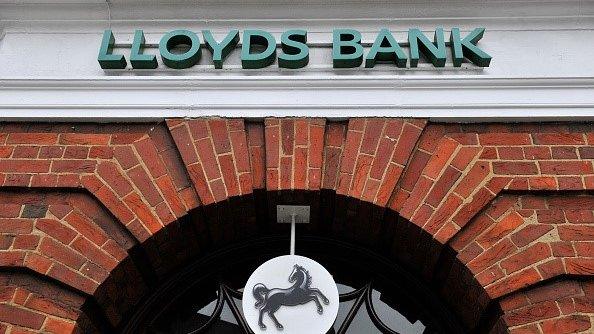Lloyds Bank profits hit by bond buyback
- Published
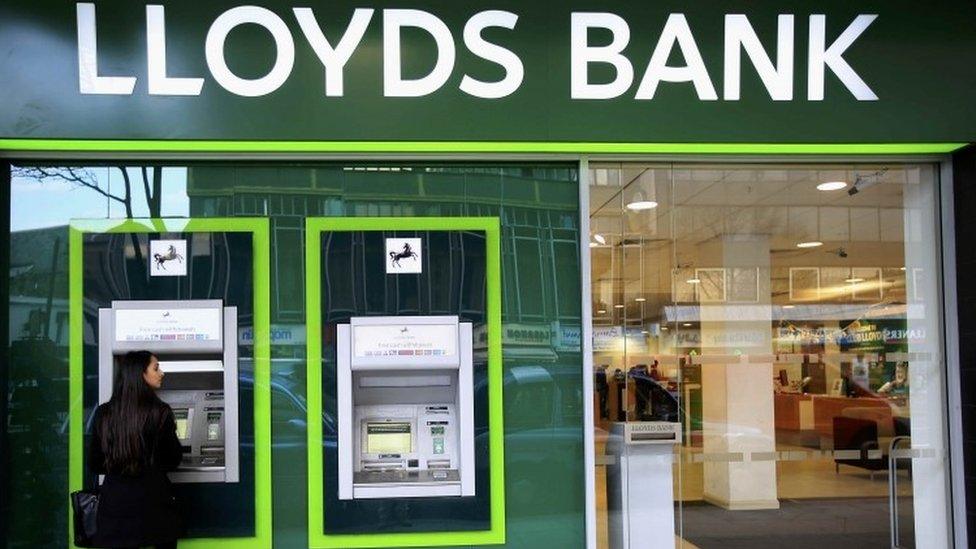
First quarter profits at Lloyds Banking Group have nearly halved after the bank was hit by the cost of buying back high income bonds.
Pre-tax profits for the three months to March fell to £654m, mainly due to a £790m charge for redeeming the bonds, called "enhanced capital notes".
However, chief executive Antonio Horta-Osorio said Lloyds' performance in the quarter had been "robust".
Underlying profits, external dipped 6% to £2.05bn for quarter.
Mr Horta-Osorio said the bank had "continued to make good progress".
No further provisions were made for PPI compensation, where complaint levels were running at an average of 8,500 a week, broadly in line with expectations.
The enhanced capital notes were issued in 2009 to raise capital in the wake of the financial crisis.
Lloyds redeemed the remaining £3bn of the bonds in the first quarter of the year in a move that could save the bank about £1bn over the next four years.
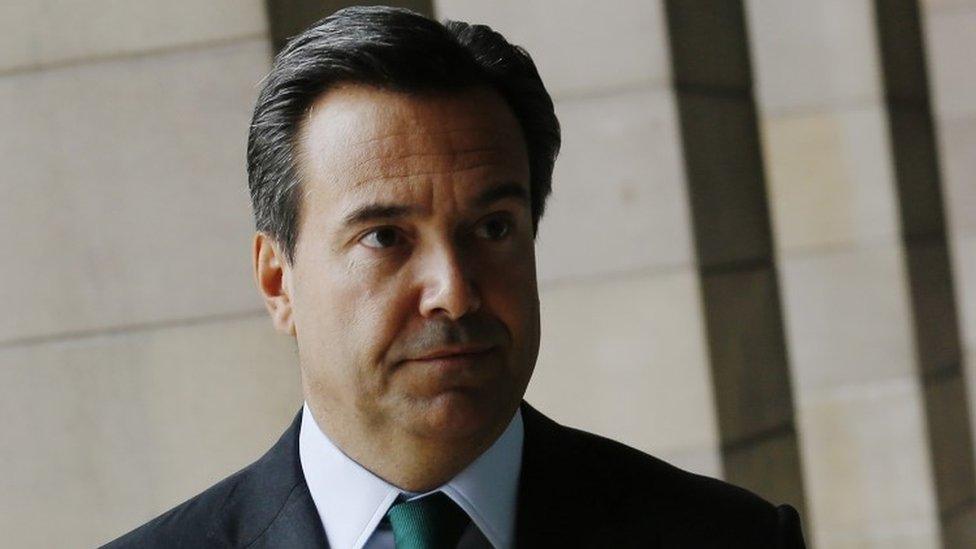
Lloyds chief Antonio Horta-Osorio said he wanted the bank to become "simpler and more efficient"
Shares in Lloyds were down 2.6% at 67.3p in afternoon trading.
Lloyds was rescued by the government during the financial crisis, which left the state holding a 43% stake in the bank.
The government has been steadily reducing its stake and now holds less than 10%.
In January, the chancellor postponed the sale of the government's final stake in Lloyds, blaming the turmoil in financial markets.
Mr Horta-Osorio has cut thousands of jobs and said Thursday's results reflected the bank's "simple, low risk business model."
Lloyds, which is the largest retail bank in Britain, said total income fell 1% to £4.38bn as higher revenue from its retail bank was offset by lower income from its insurance division.
On Wednesday, Barclays reported a 25% drop in profits for the first quarter of the year.
It had set expectations low, warning it had been hit by the same headwinds that have hit profits across most of the world's biggest banks.
- Published14 April 2016
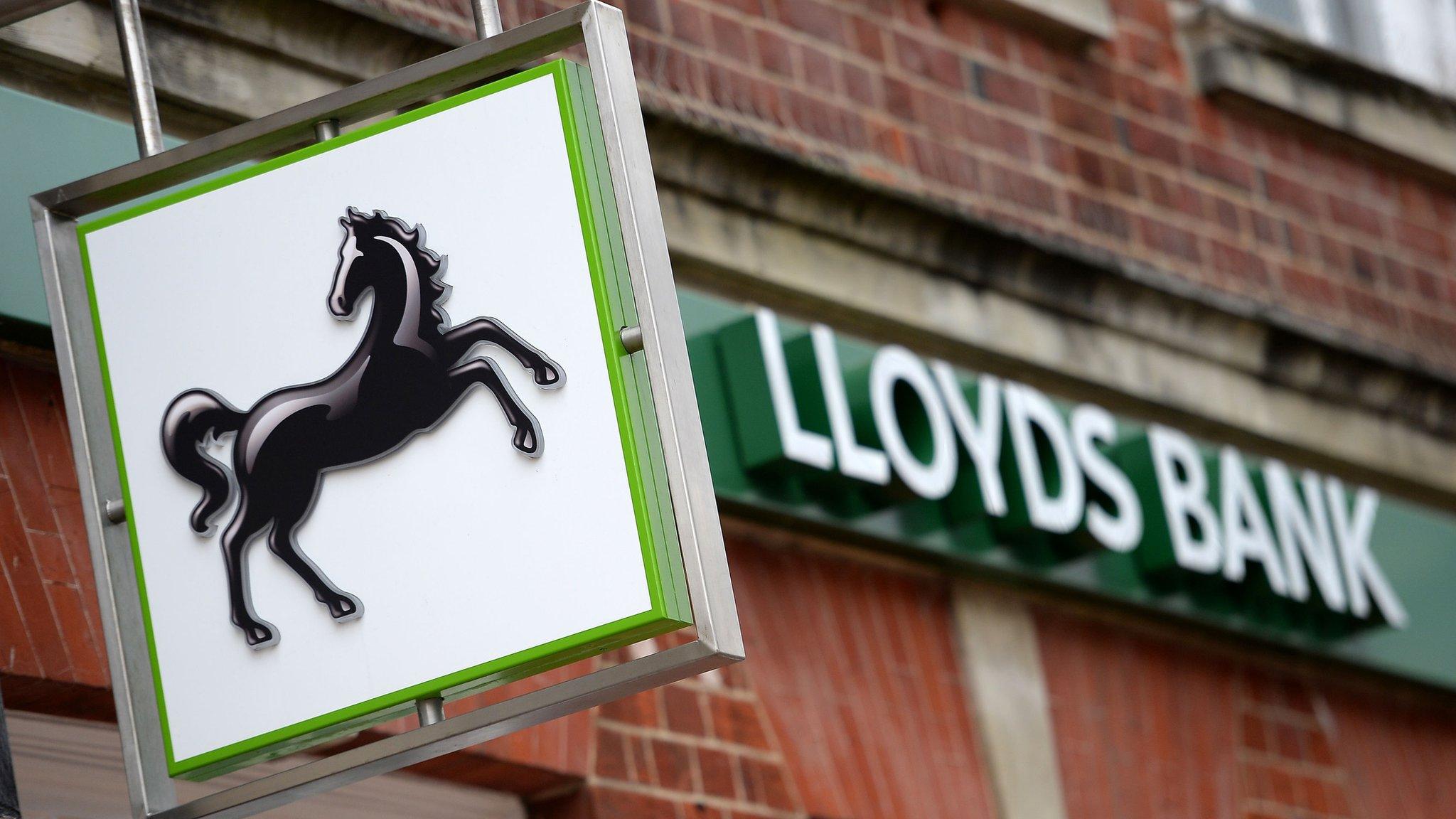
- Published28 January 2016
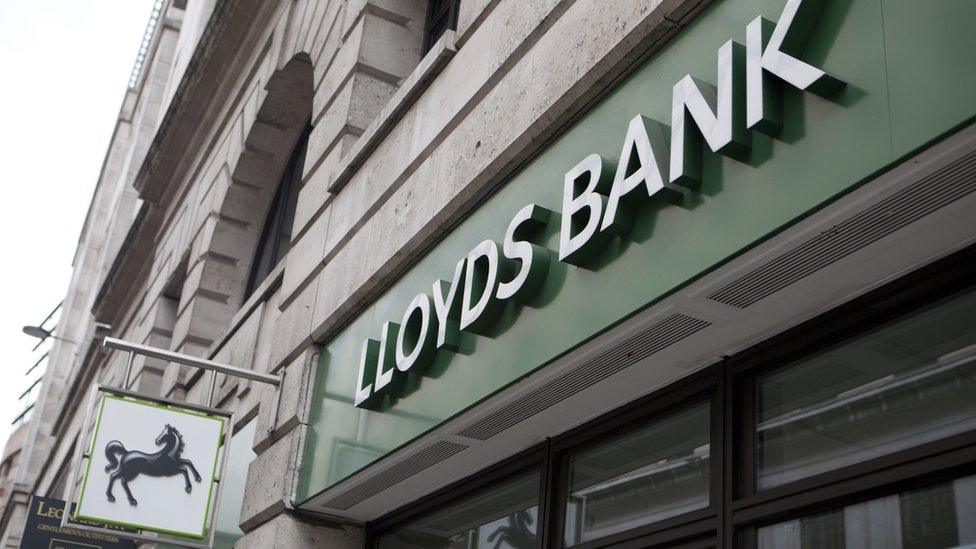
- Published25 February 2016
